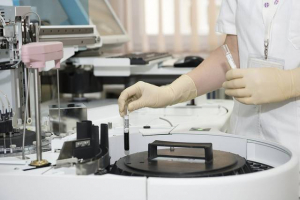-
Home
-
About ProcessTeknik
-
Activities
-
Plan your visit
-
For Exhibitors
-
How the pharmaceutical industry will be made more efficient
 A project is currently underway between Lund University, Novo Nordisk, BioInvent, Cytiva and Modelon, in which they are working to develop and build autonomous mini-factories for biological drugs. A project that will change the entire pharmaceutical industry all the way from production to availability and cost for the end user.
A project is currently underway between Lund University, Novo Nordisk, BioInvent, Cytiva and Modelon, in which they are working to develop and build autonomous mini-factories for biological drugs. A project that will change the entire pharmaceutical industry all the way from production to availability and cost for the end user.
The production of medicines is expensive and slow, at least it has been so historically, especially for biological medicines. Bernt Nilsson is a professor of chemical engineering at Lund University and leads the project on autonomous mini-factories:
– When you produce drugs, you develop new molecules, and it is a solid job. Once you have developed good ones, the process of testing them on patients and checking for side effects starts. You then do this on thousands of patients for the drug to be approved, which is both expensive and time-consuming.
When it comes to biological drugs, the process is even more complicated and extensive.
– Since we do not know what biological molecules look like, you need to get the manufacturing method approved. This means that when you get approval for a drug, you get approval for the factory itself. And this in turn means that you are not able to rebuild it, as the factory is approved together with the manufacturing method, says Bernt Nilsson.
Bernt and his colleagues’ project with autonomous mini-factories involves taking technology and theory for large factories and moving them down to as small a scale as possible. The plant is then developed and when it is completed, it must pass the clinical trials required to approve the procedure.
– We have developed a technology whereby we can build different factories on a lab scale and then we build a control system on top of this, which allows us to run the factory automatically. In line with Industry 4.0, we make digital twins, a digital version of smart mini-factories that can even make decisions. Just as Volvo makes self-driving cars, we want to make a self-driving autonomous mini-factory, says Bernt Nilsson.
The development of autonomous mini-factories for biological drugs will change the industry and have a great effect on society as a whole, as well as individuals.
– There are two decisive consequences of this development. In part, we will be able to reduce the size of the factories by 30-50% and thus consume much less material, i.e. chemicals. Small factories are thus easier to move, which means that more places in the world, which otherwise would not have been able to produce their own medicines, will be able to in future, says Bernt Nilsson.
For Bernt and his colleagues, the driving force is to lower the price of pharmaceutical production so that it becomes available to the whole world and not just the small numbers that have the ability to pay the high prices that result from today’s methods.
The importance of meeting, initiating collaborative activities and finding solutions together will only keep increasing. At Automation Summit on 6 October 2021 politicians, researchers and companies will gather to discuss the future of the industry and how it will be both smarter and more sustainable. This year, Automation Summit will take place digitally in collaboration with the Swedish Exhibition & Congress Centre, IVA and the strategic innovation programme PiiA.
ProcessTeknik is the meeting place for the future process technology.
Together with Scanautomatic and Nordic Food Industry ProcessTeknik puts together a cross-industry meeting place with three trade fairs under one roof. With the aim of increasing competence to confront common challenges, in 2021 we will focus on three areas – sustainability, smart industry and energy. ProcessTeknik takes place on 4-6 October 2021 at the Swedish Exhibition & Congress Centre in Gothenburg.